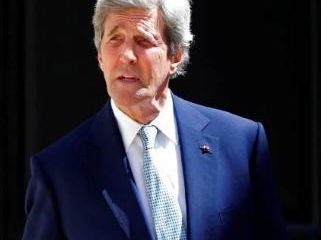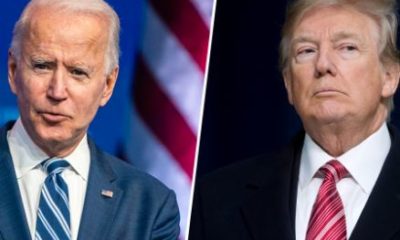World
UN Security Council reform effort gets broad backing; China, Pakistan oppose move

United Nations: The top diplomat heading the efforts for Security Council reforms has unveiled a framework document to pave the way for text-based negotiations amid broad support for his effort to spur the long-stalled process and vehement opposition from China and Pakistan.
Jamaica’s Permanent Representative Ambassador Courtenay Rattray, who is the chair of the Intergovernmental Negotiations (IGN) on Security Council Reform, presented the framework document at a closed informal meeting of the General Assembly Thursday and asked member nations to share their views on it so he can produce a negotiating text based on their inputs.
According to sources familiar with Thursday’s proceedings, a broad spectrum of nations as diverse as Security Council permanent members Britain and France and the 42-member pro-reform group known as L69 said they would go along with the process leading to text-based negotiations. The United States also supported the text-based process while opposing a timeline.
Welcoming Rattray’s initiative, India’s Permanent Representative Asoke Kumar Mukerji, told the meeting, “For many developing countries, it is simply untenable that out of 137 developing country members of the United Nations, only one has so far been accommodated as a permanent member of the Council.”
He added, “We need to urgently broaden the Council to make it more representative, more effective and more democratic, reflecting the diversity of our United Nations.”
India, which is heavily invested in the reform process, is widely regarded as a front-runner for a permanent seat on an expanded Security Council. Along with Brazil, Germany and Japan, India constitutes the group G4, whose members mutually support each other’s candidacy for permanent Security Council seats and lobby for reform.
A negotiating text is basic to conducting discussions on Security Council reforms but in a bizarre diplomatic drama the very task of producing one has been held hostage for over a decade by nations opposing the trend towards Security Council expansion. They claim that there has to be a consensus before a negotiating text can be drawn up, even though in practical terms there can’t be discussions to reach a consensus without a document setting out what is being negotiated.
General Assembly President Sam Kutesa and Rattray, whom he appointed as the chair of the IGN, have been trying to break this impasse. Kutesa called on all the member states to support Rattray’s efforts and move towards text-based negotiations.
Besides L69, Rattray received the backing of the 52-member Small Island Developing States group that includes Singapore and the 15-member Caribbean Community, CARICOM.
China led the charge against Rattray’s push for text-based negotiations. The sources said that China’s Permanent Representative Liu Jieyi expressed strong opposition to the effort to move the negotiations forward with a negotiating text and said that Beijing had reservations against the IGN chair.
China was backed by Pakistan and Italy, which are members of the 13-member Uniting for Consensus (UfC) group. They reiterated their position that there should be a consensus first and opposed any timeline for the reform process.
Russia took an ambivalent stance saying it was willing to engage in the move to text-based negotiations although it did not think it was appropriate right now because of the differences among the members.
Mukerji told the meeting that there was nothing controversial about pressing ahead with the reform process because all the world leaders at the 2005 UN 60th anniversary summit had unanimously agreed on early Security Council reform.
Speaking on behalf of G4, Japan’s Permanent Representative Motohide Yoshikawa said the 70th anniversary summit in September would be the occasion to carry out the reform of the Security Council and urged Rattray to keep this occasion in mind as he pushes ahead with the reform process.
India’s candidacy for a permanent seat in the Council is backed by four of the five permanent members, Britain, France, Russia and the United States. China, which has not backed India, softened its position by agreeing in a joint communique with Russia and India in February that it supported New Delhi’s “aspiration to play a greater role in the United Nations.”
When it was founded in 1945 with 51 members, the veto-wielding permanent Security Council seats came as spoils of war to the victors of World War II, Britain, China, France, Russia and the US. There were in addition six elected non-permanent members. In 1965, the number of non-permanent members was raised to 10. There have been no changes even though UN’s membership has risen to 193.
World
Lockdowns in China Force Urban Communities to Defy Censorship and Vent Frustration Online

Shanghai’s rich middle class is leading a wave of online dissent over the strict and prolonged lockdowns imposed in various parts of the country. Chinese internet censorship is struggling as patience is wearing thin in many urban centers, coming up with creative forms of online protests.
Social Media Posts Revealing Lockdown Tension in Shanghai
Drawn-out lockdowns are nothing new in China as authorities insist with the nation’s zero-Covid policy since the start of the pandemic. Currently over This time around, however, metropolitan areas like Shanghai are increasingly difficult to keep quiet, given that its more than 25 million residents have seen weeks of total isolation along with food shortages and many other service interruptions.
Dozens of towns and reportedly over 300 million Chinese citizens have been affected by lockdowns of different severity. As expected, urban netizens have been most outspoken over their difficulties by finding creative ways to get around state censorship and bans placed on topics, news comments and spontaneous campaigns.
Shanghai residents have been using mobile proxies and hijacking seemingly unrelated hashtags to talk about healthcare issues, delivery failures and the overall severity of their situation. The “positive energy” that the Chinese government wants to transmit during the recent prolonged series of lockdowns does not come naturally to those counting food supplies and online censors are working hard to filter words, trending topics and undesired social media sharing.
WeChat groups and message threads are under constant monitoring. Posts questioning the zero-Covid approach have been quickly deleted, including by leading Chinese health experts like Dr. Zhong Nanshan. Video footage is soon censored and protests and investigations are quickly made to disappear.
Where this has not worked, officials have exposed banners with warnings and outright threats like “watch your own mouth or face punishment”, while drones have been patrolling the city skies. Yet, if anything, this has led to further tensions and unspoken confrontation with Shanghai’s educated and affluent middle class.
Creative Online Solutions Harnessing Civic Energy
Announcements by Chinese social media that they would be publishing the IP addresses of users who “spread rumors” have not helped either. Tech industry research has shown that much of Asia’s tech-savvy population has a habit of using mobile proxies and other privacy tools, quickly finding workarounds to browse the internet freely and talk to the world about the hottest topics.
The sheer volume of forbidden posts is already a challenge for the very censorship system, experts explain. Unable to track all trending hashtags, state workers overlook topics that speak about the US, Ukraine or other popular news. Linking human rights elsewhere to their situation, Chinese online dissidents establish their informal channels and “hijack” the conversation to share personal or publicly relevant information about the Covid suppression in their town.
Sarcastic and satirical posts still dominate. Others hope to evade the censors by replacing words from famous poems or the national anthem. One thing is certain – social media, when harnessed with the right creativity, has proven its ability to mount pressure on the government in even some of the most strictly controlled tech environments like China.























